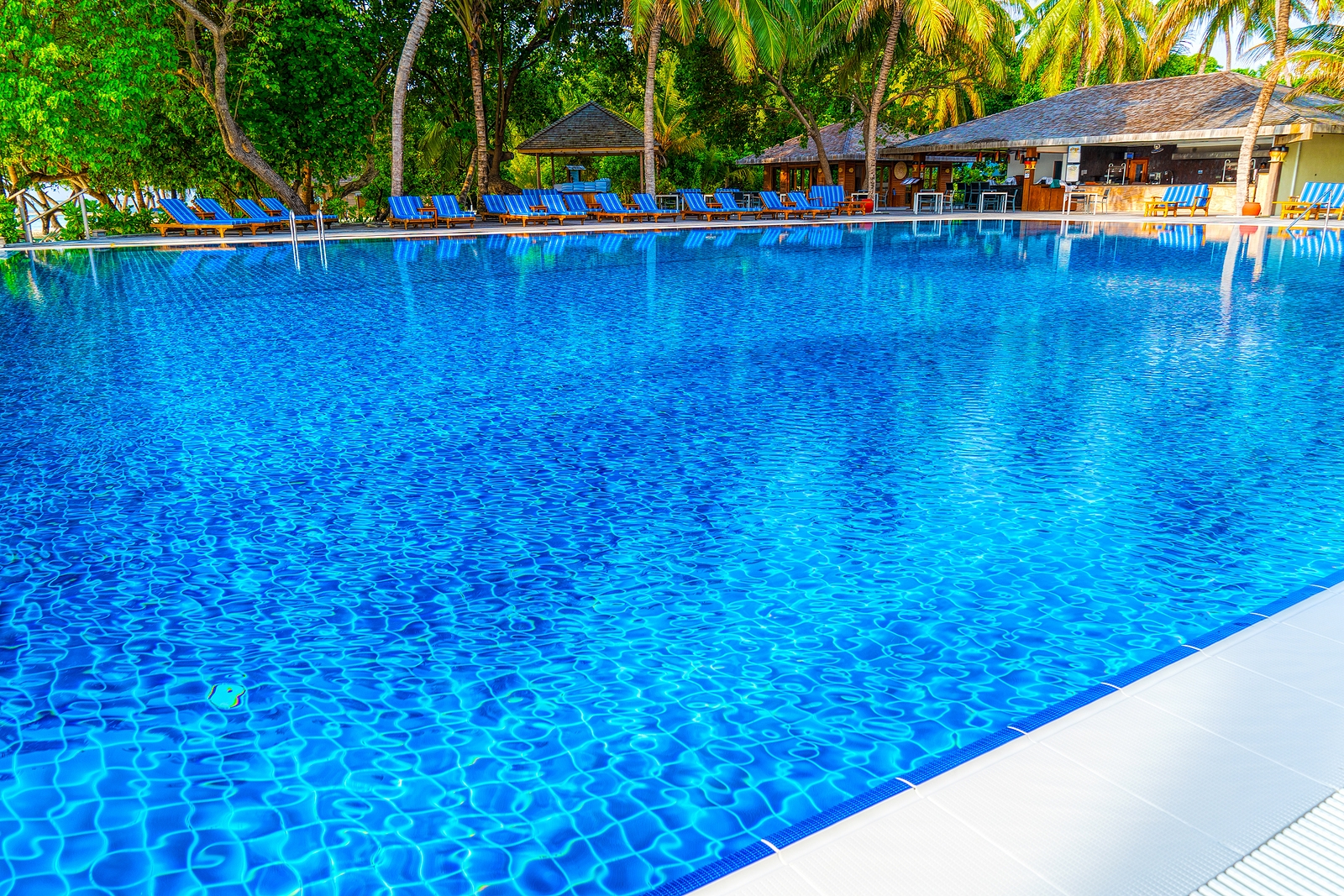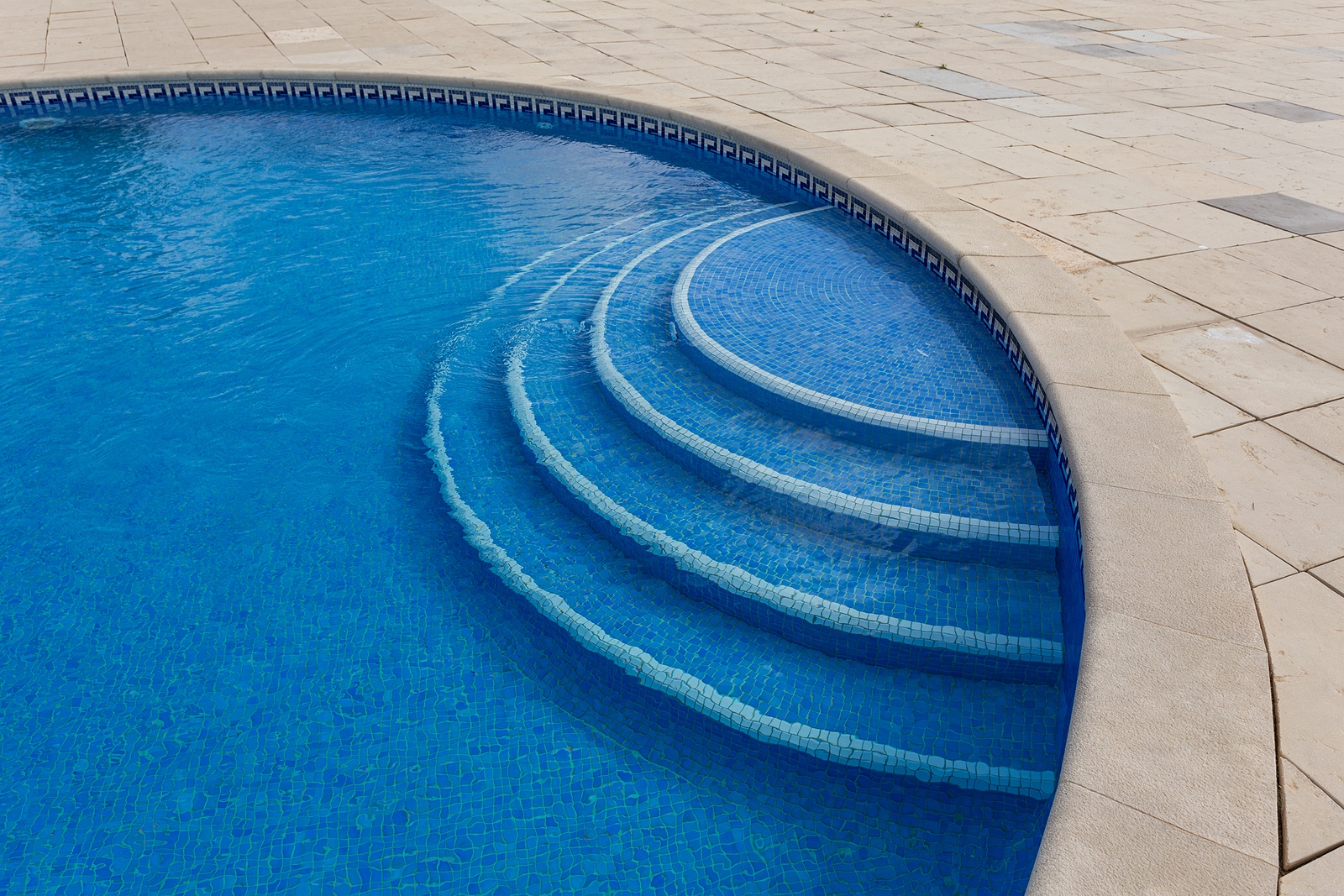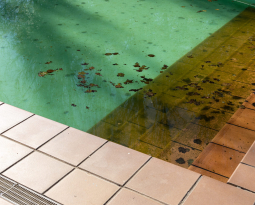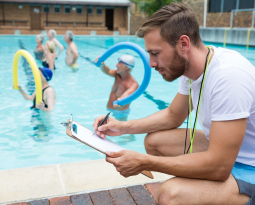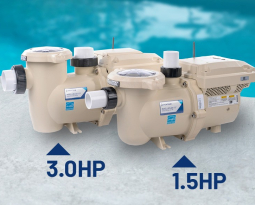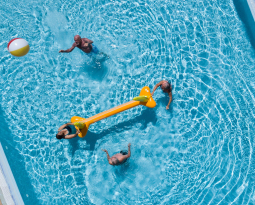Commercial Pool Cleaning – The Importance of Chemical Safety
Who doesn’t love a refreshing dip in the pool on a hot day? Commercial swimming pools are incredible amenities for many communities, allowing residents and their guests to soak up some Vitamin D by the water.
Did you know showering before entering is a rule at most commercial pools? Probably not, right? Most people wouldn’t think to shower before going for a swim as it’s likely they’re going to shower afterward.
With so many different people using the pool at a time and not taking the time to shower before entering, bacteria can build up and make the water unfit for swimming.
How can we avoid this? By enlisting the help of specialized chemicals during a commercial pool cleaning. It’s important that these chemicals are stored, handled, and safely used.
Are Chemicals Necessary?
The simple answer? Yes, pool chemicals are necessary, especially during a commercial pool cleaning. Sanitizers are added to pools in order to kill germs, oxidize bather waste, and prevent the risk of Recreational Water Illnesses (RWIs). Other chemicals are used to increase water quality, clarity, and monitor the pH balance. Each and every chemical used during a commercial pool cleaning plays an important role in maintaining a safe and healthy aquatic environment.
Common Mistakes With Commercial Pool Cleaning Chemicals
When used correctly, commercial pool cleaning is a safe process. However, ignoring the rules that govern the proper chemical use and storage have consequences.
Pool chemical injuries happen more often than you might think. A 2012 study from the CDC found that over 4,000 people sought medical attention due to pool chemical injuries, mostly caused by the inhalation of toxic fumes.
Chemical reactivity is often the result of mishandling pool chemicals. Something as small as a leak in the chemical storage area can have big consequences.
Pool chemicals are specifically designed for use in large amounts of water. Small quantities of water seeping during storage may lead to a chemical reaction, causing the chemical to give off toxic fumes. Not only are these fumes harmful to breathe, but they can also cause high temperatures that may ignite other combustible materials stored nearby.
Moisture is not the only enemy of pool chemicals. Mixing pool chemicals often leads to chaos since the most common chemicals are incompatible with each other. Similar to the effects of moisture, accidentally mixing incompatible chemicals can also cause the release of dangerous gases. This can happen when liquid chemicals and solid chemicals are stored on top of one another or right next to each other.
How to Properly Store and Handle Pool Chemicals
Pool chemicals necessary for commercial pool cleaning are completely safe when handled properly. Whoevere is responsible for adding the chemicals must understand the risks associated with handling pool chemicals and ensuring their safe use and storage.
It’s crucial to keep pool chemicals dry, except of course when using them in pool water. It’s also essential to identify storage problems that may lead to harmful chemical reactions caused by moisture. Some common sources of unwanted water include:
- Leaks from fire prevention sprinkler systems
- Water used to clean other areas of the pool/storage facility
- Rainwater from roof or window leaks
- High humidity during summer months
In addition to keeping pool chemicals dry in storage, you have to think about the best ways to store and use the chemicals so they don’t accidentally mix with each other. When trying to identify chemical hazards, you should think about:
- Storing incompatible substances separately
- Ensuring the chemical storage facility is checked and cleaned regularly
- Using dedicated tools for each chemical
- Handling only one chemical at any given time
- Not allowing fresh chemicals to mix with older chemicals
Last but certainly not least, wearing proper protective equipment during a commercial pool cleaning is the most important part of working with chemicals. Personal protective equipment (PPE) is necessary for preventing injury to a person’s eyes, skin, or respiratory system when in contact with concentrated pool chemicals.
Commercial Pool Cleaning with Pool Operations Management
Knowing all the rules and regulations surrounding the use of pool chemicals can be overwhelming. If you want to learn more about the proper use of chemicals during a commercial pool cleaning, contact Pool Operation Management. We offer two-day, in-person classes as well as flexible online training to accommodate any schedule. All training sessions offered cover a wide range of topics, including the safe use and storage of pool chemicals. For the best pool operation training available, contact us today!



